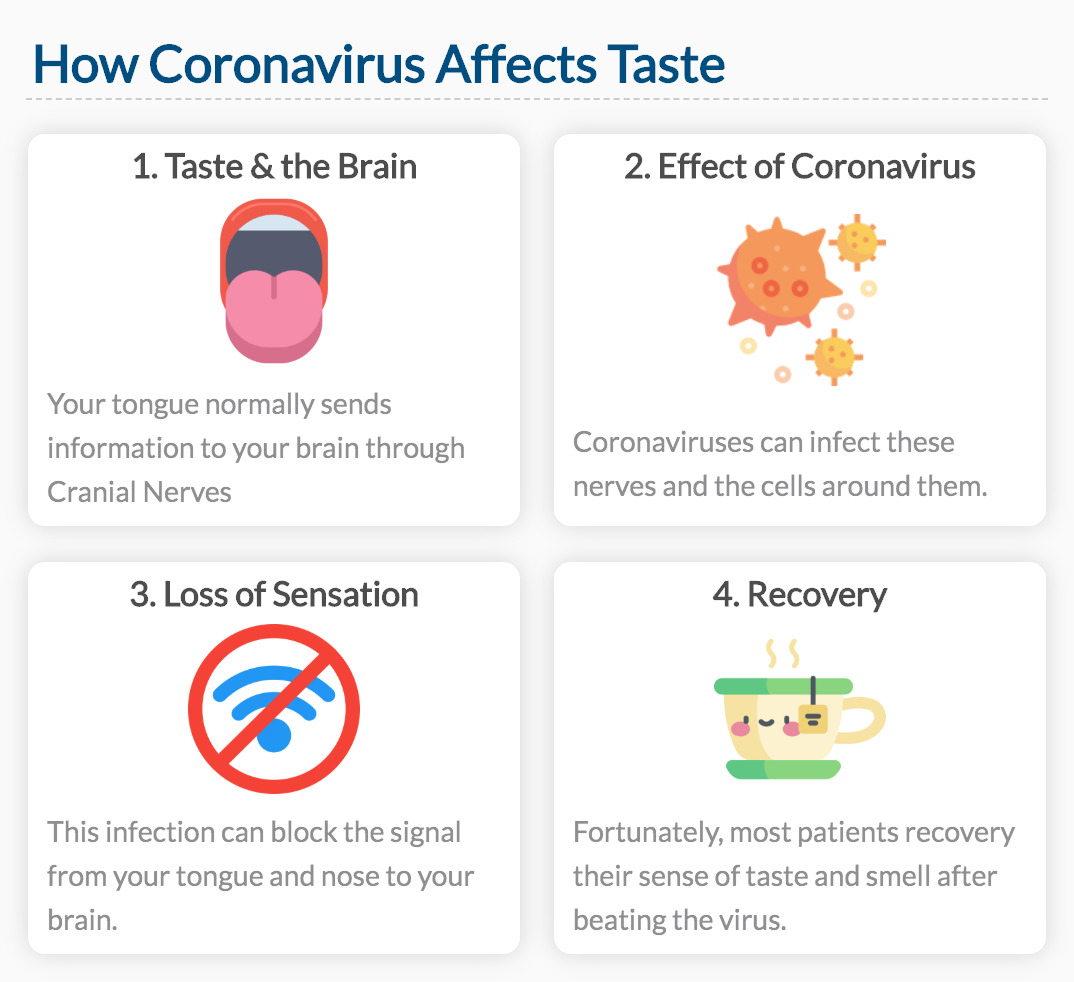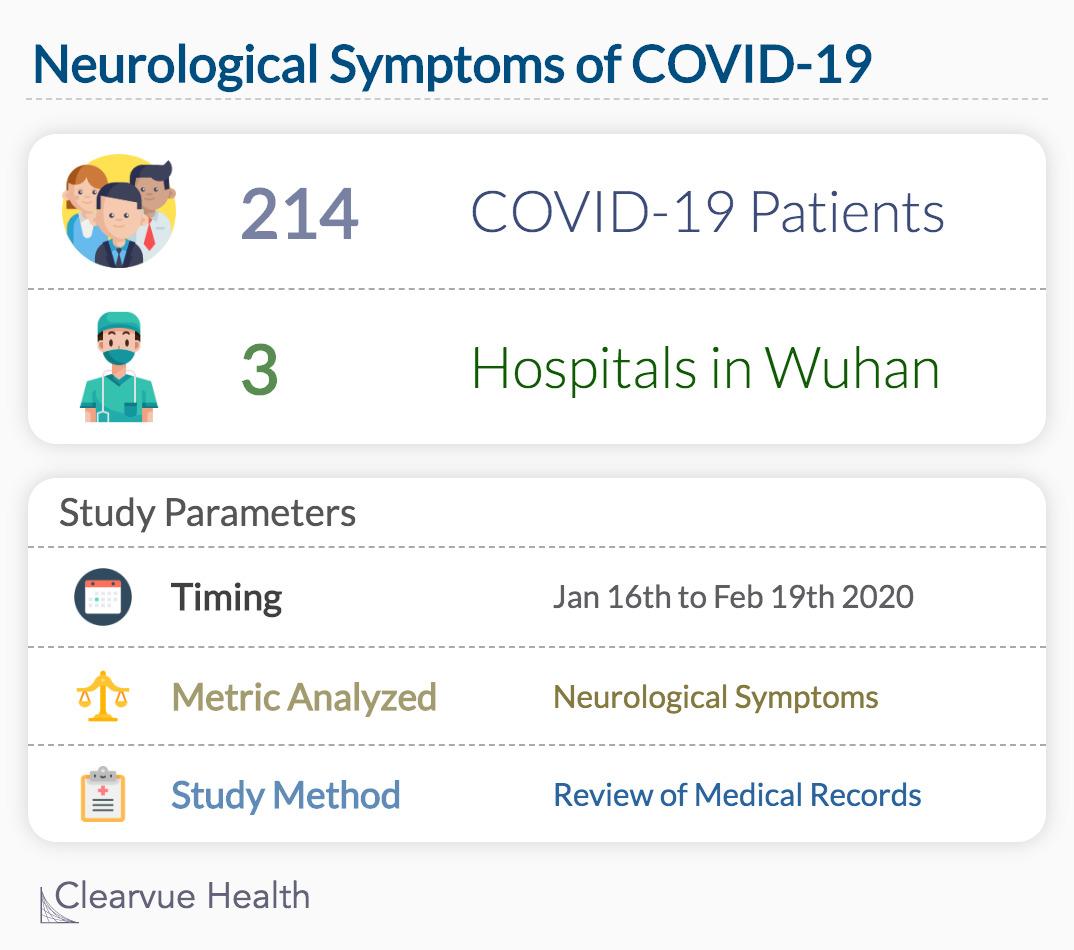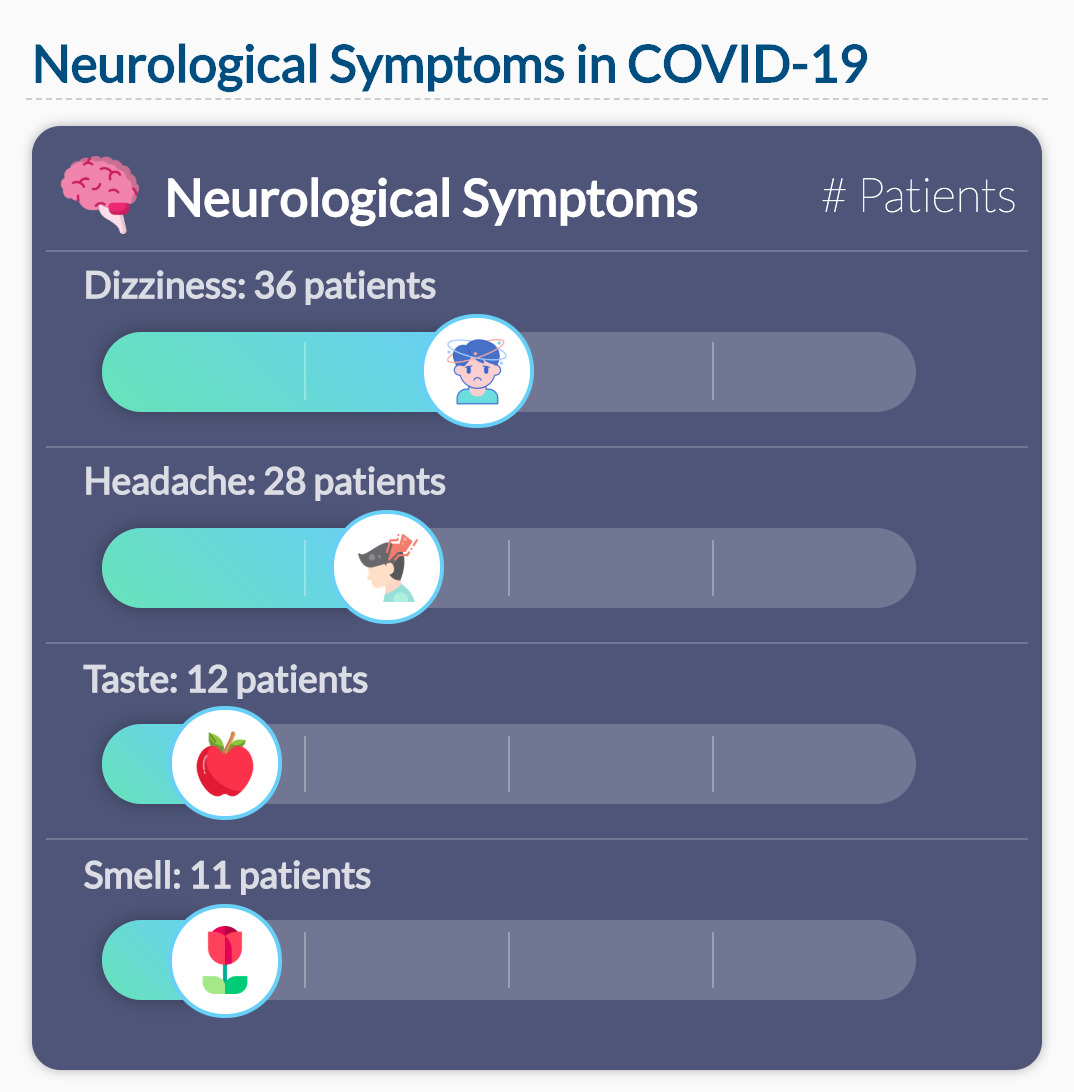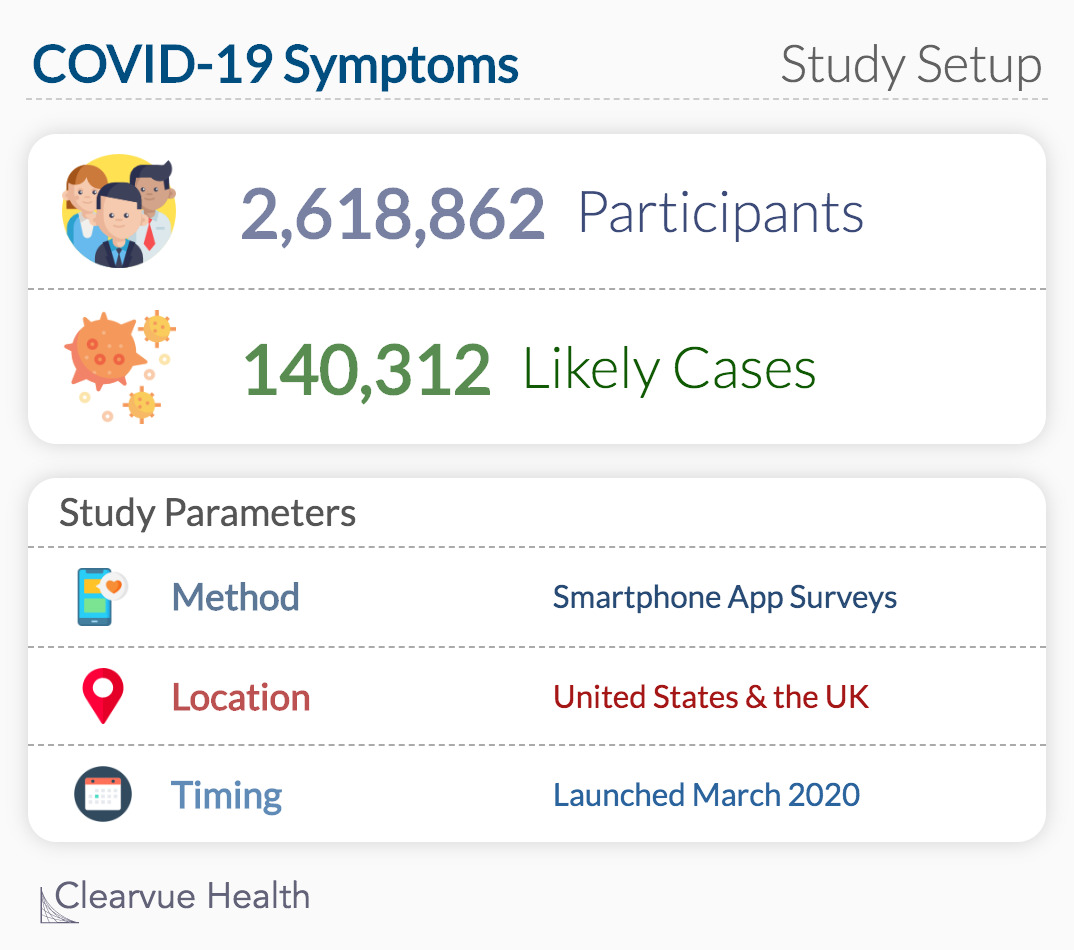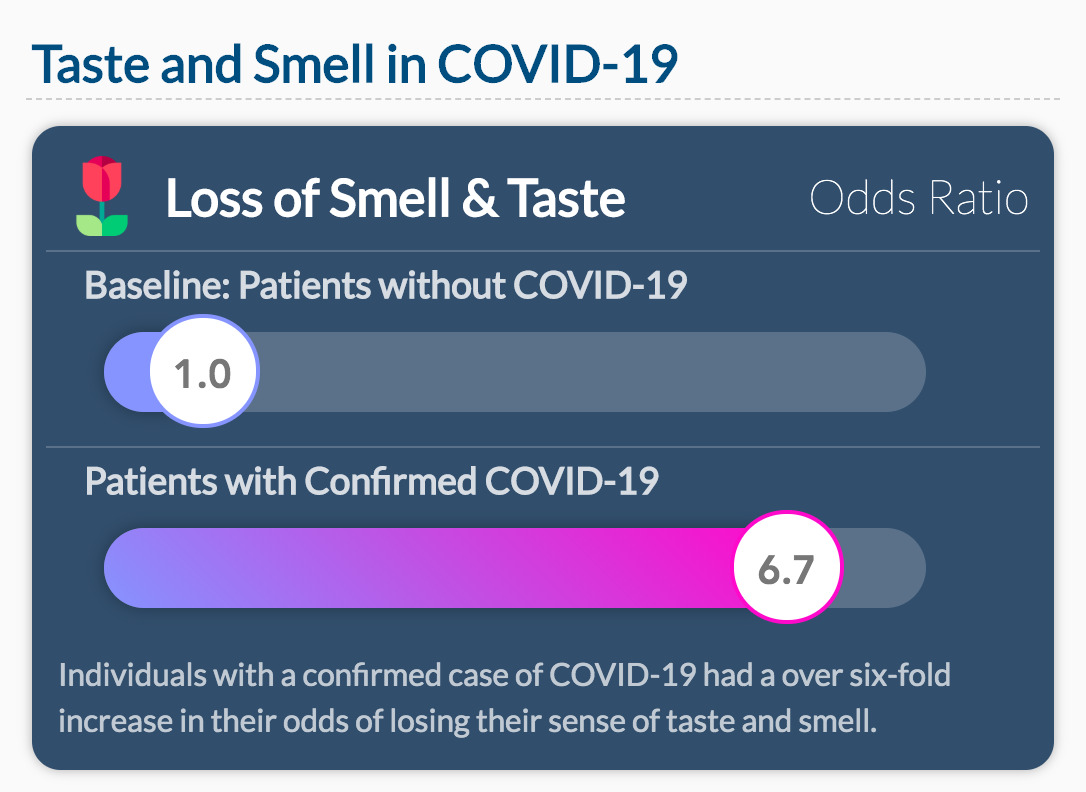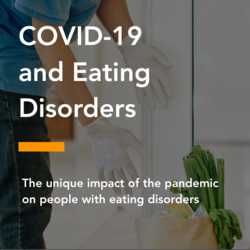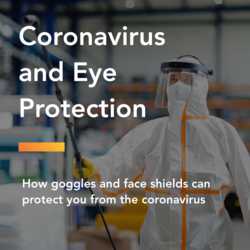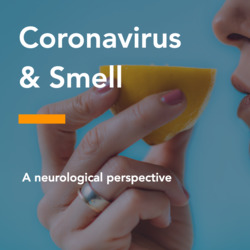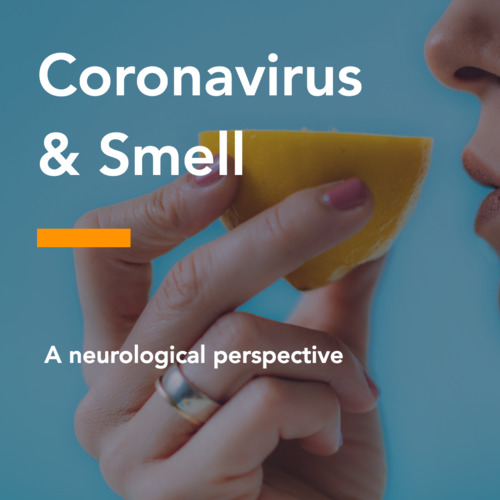“
About two months ago, Regan says he went from feeling fine to suddenly losing his sense of taste... “That was completely, really, the only symptoms that I had. If this wasn’t going around, I would have chalked it up as the bad case of allergies,
Regan, a Dayton, Ohio, resident.
Source: Dayton247Now
To stop the spread of a virus, it is important to identify those infected by testing and symptom tracking. Early on, scientists established cough, fever, shortness of breath, muscle pain, sore throat, and chills as symptoms associated with COVID-19. Just recently, the CDC added a new symptom to the list: loss of taste.
Source: CDC COVID-19 Symptoms
This symptom signals to scientists that the virus is hurting more than just our respiratory system. In this article, we consider how the virus may affect neurological functioning.
Early study of symptoms
Three hospitals in Wuhan, China, provided the health information of 214 hospitalized patients with confirmed SARS-CoV-2 infections. Patients were recruited from January 16 to February 19, 2020.
They analyzed symptoms such as dizziness, headaches, seizures, impaired consciousness, taste impairment, smell impairment, and vision impairment.
Source: Neurologic Manifestations of Hospitalized Patients With Coronavirus Disease 2019 in Wuhan, China
In the sample, 88 patients had a severe infection and 126 patients had a nonsevere infection. Neurological symptoms were identified in 78 patients.
In patients with peripheral nervous system symptoms, 12 patients reported a taste impairment.
Interestingly, most neurological symptoms occurred early in the illness. On average, the symptoms were recorded within the first two days of illness.
Dizziness and headache were the most common neurological symptoms. Taste impairment was present, but the study does not tell us for sure that loss of taste is a symptom- at least, until a larger study came out.
Confirmation from a larger study
An app, called COVID-19 Symptom Tracker, was released in March of this year. The purpose of the app was to collect data about hotspots, testing, and disease progression directly from the patients themselves. The app was released in the United States (US) and the United Kingdom (UK). After three weeks, over 2.5 million people reported their coronavirus-related health information.
In the UK, 64.76% of positive cases and 22.86% of negative cases reported a loss of smell and taste. In the US, 67.49% of positive cases and 17.33% of negative cases reported a loss of smell and taste.
The odds of losing your sense of smell and taste are more than six times higher if you have a confirmed case of COVID-19.
Source: Real-time tracking of self-reported symptoms to predict potential COVID-19
Why does this happen?
This virus is not like your typical cold. A sneezing and a running nose are not associated with coronavirus. Therefore, the virus is influencing your sense of taste in a different way than just blocking your nasal passages. Scientists think it’s all about the nerves.
Pay attention to your sense of taste
The loss of taste may be a milder symptom of COVID-19, but, nevertheless, it is a possible indicator of infection based on the study and mass collection of data. We must pay close attention to the loss of taste and other neurological symptoms to avoid delays in care and transmission of the virus.

